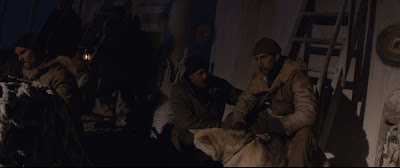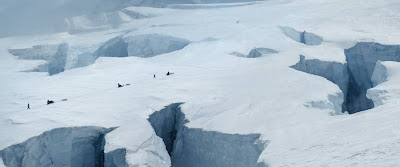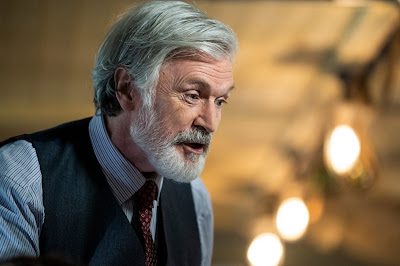A spiritualist medium holds a séance for a writer suffering from writer's block but accidentally summons the spirit of his deceased first wife which leads to an increasingly complex love triangle with his current wife of five years.
Blithe Spirit is a curious film that has a vibe not dissimilar to that of Murder on the Orient Express or Knives Out; a film that covers darker subjects (such as death and murder) but is portrayed in a manner that makes them more comical and lighthearted. A period piece that is visually vibrant to the point of being child-like, Blithe Spirit sits in the peculiar niche of being comprised of one-note characters and physical humour that appeal to the younger audience but also involves alcohol, drugs (more than a few jokes about amphetamines), and a fair amount of sexual humour. Pink Panther for mid-teens, if you will.
Keeping that in mind, Blithe Spirit is a reasonable comedy. The set and production design are immaculate. The sense of that early period with the facets of wealth intertwined into the condition, quality, and colour of the set pieces keeps things intriguing.
However, if you consider the film for its comedic merit, it falls much shorter. Nine out of ten "funny moments" in the film are set up around a single style of humour; all reliant on our main character never being aware of his surroundings, and having his dialogue constantly taken out of context. The humour is amenable but garners diminishing returns as the film progresses.
Continued use of the same schtick makes it abundantly clear that there is no real character development in play, and the payoff to each setup achieves less satisfaction. To younger audiences, this continued beating of a dead horse would be fine and still elicit laughs every time. Still, again, the jokes about amphetamines and implied sexual activities are not subtle enough to really want younger audience members exposed to it.
An aspect that did go down well, however, was the relationship between our main character Charles Condomine (portrayed by Dan Stevens) and his ex-wife Elvira Condomine (portrayed by Leslie Mann). Their relationship feels the most organic and transitions through the honeymoon period to a satisfying extent. It provides enough of a twist to the usual tropes and narratives that makes the inevitable conclusion of the film less predictable. Blithe Spirit does feel longer than its 96-minute runtime, with its one repeated joke doing very little to keep the pace flowing, and our main character Charles having a very passive role in the film.
All of the acting performances are over-the-top, making Blithe Spirit quite faithful to the source material (Blithe Spirit is based on a 1941 play of the same name). This complete translation to the silver screen seems out of place and fails to make use of the cinematographical advantages that cinematic productions provide. All performances from the actors are given as if they still need to convey an emotion to someone sitting 300 feet away; no subtleties, and an energy that feels forced.
Another element that does work to the advantage of the younger audiences to whom funny faces and over-exaggeration have a greater appeal. The supporting cast does an admirable job in driving the plot along and playing off of their opposing personality traits; Mann playing the sultry, seductive, passionate ex-wife, and Isla Fisher playing the spoiled rich daughter. Dame Judi Dench has the most potential in her role in the film but has very little to do.
Overall, the cinematic adaptation of Blithe Spirit, offers little in the way of anything new. The story and themes haven't changed since the 1940s; while the stories may have been fresh back then, the expansion of the entertainment industry has meant these themes and storylines are over-used and outdated. The characters are more like caricatures and lack any depth, but in a year that has left more than its fair share of people with a lot of worries, perhaps Blithe Spirit can provide that "shut-off-the-brain" entertainment, and give a little bit of harmless escapism.
Blithe Spirit is in cinemas from December 26, 2020
Originally posted to: https://djin.nz/Kr8763

















































